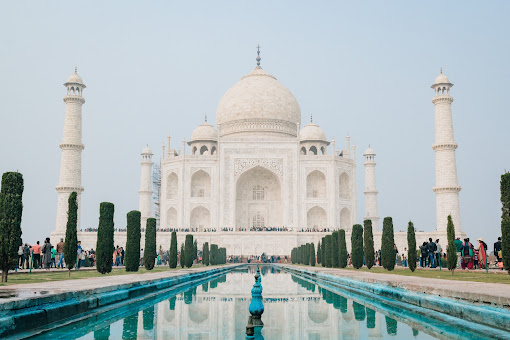Unveiling India's Timeless Treasures: A Historical Journey Through the Ages
Whether you're a history buff or simply curious about the world, India's impressive monuments, temples, palaces, and museums are sure to leave you in awe. From the majestic Taj Mahal to the ancient ruins of Hampi, the country is home to some of the most iconic historical sites in the world. And with each region boasting its own unique stories and landmarks, there is no shortage of experiences waiting to be discovered.
But what makes India truly special is that many of these historical sites are not just relics of the past, but are still an integral part of everyday life in the country. Temples continue to be places of worship, and palaces have been transformed into hotels and museums, offering visitors a chance to experience the grandeur of India's past firsthand.
So, whether you're looking to learn more about India's fascinating history, or simply want to immerse yourself in the country's rich cultural heritage, India is the perfect destination for you. Get ready to embark on a journey of discovery and wonder, as you explore some of the best places to travel for history lovers in India.
Agra: The City of the Taj Mahal No trip to India is complete without a visit to the Taj Mahal, one of the world's most iconic and beloved monuments. Built by the Mughal emperor Shah Jahan in memory of his beloved wife Mumtaz Mahal, the Taj Mahal is a masterpiece of architecture and engineering. But Agra has much more to offer than just the Taj Mahal. The city is home to other historic landmarks like the Agra Fort and Fatehpur Sikri, which are also UNESCO World Heritage sites.
Jaipur: The Pink City Jaipur, the capital of Rajasthan, is known as the Pink City for its distinctive rose-colored buildings. It's also one of India's most historic cities, with a rich cultural heritage that dates back to the 18th century. The city's historic monuments, including the City Palace, Hawa Mahal, and Amber Fort, are a testament to its royal past. Jaipur is also known for its vibrant bazaars, where you can find traditional handicrafts, jewelry, and textiles.
Delhi: The Capital of India Delhi, India's capital, is a city that has seen the rise and fall of empires over the centuries. From the Mughal era to the British Raj, Delhi has been a center of power and culture. The city's historic landmarks, including the Red Fort, Qutub Minar, and Humayun's Tomb, are a testament to its rich history. But Delhi is also a modern metropolis, with world-class museums, galleries, and restaurants.
Varanasi: The City of Life and Death Varanasi, also known as Benares, is one of the oldest continuously inhabited cities in the world. It's a city that's steeped in tradition and spirituality, and is considered one of the holiest cities in India. The city's narrow lanes, ghats, and temples are a testament to its rich cultural heritage. The Ganges River, which flows through the city, is also an important part of its spiritual identity.
Hampi: The Lost City Hampi, located in the southern state of Karnataka, is a UNESCO World Heritage site and one of India's most important archaeological sites. It was the capital of the Vijayanagara Empire, which ruled southern India from the 14th to the 16th centuries. The city's ruins, which include temples, palaces, and public buildings, offer a glimpse into its glorious past.
As your journey of discovery in India comes to a close, you can rest assured that you have experienced some of the most remarkable historical sites in the world. You have delved into the ancient world at Hampi, explored the grandeur of the Mughal era in Agra and Delhi, and witnessed the influence of the British Raj in Kolkata and Mumbai. But your adventure doesn't have to end here.
Take the knowledge and insights you've gained from your travels and continue to explore the rich history of India. Share your experiences with others and inspire them to embark on their own historical journey. Or better yet, plan a return trip to India and discover even more hidden gems that the country has to offer.
And remember, India's history is not just confined to museums and monuments but is also visible in everyday life. Take the time to interact with locals, try traditional cuisine, and experience the vibrant culture firsthand. By doing so, you can gain a deeper understanding of the country's past and present.
So, as you bid farewell to India, take with you memories that will last a lifetime and a newfound appreciation for the rich history and cultural heritage of this incredible country.

Comments
Post a Comment